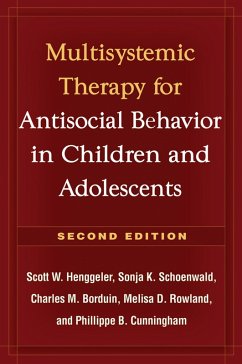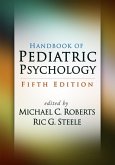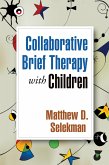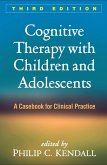Scott W. Henggeler, PhD, is retired Professor of Psychiatry and Behavioral Sciences at the Medical University of South Carolina, where he was founding Director of the Family Services Research Center (FSRC) from 1992 to 2012. The mission of the FSRC is to develop, validate, and study the dissemination of clinically- and cost-effective mental health and substance abuse services for children with serious clinical problems and their families. Under Dr. Henggeler's leadership, the FSRC received the Annie E. Casey Families Count Award, GAINS Center National Achievement Award, and the Points of Light Foundation President's Award in recognition of excellence in community service directed at solving community problems. Dr. Henggeler has received several research and education awards from national organizations, including being named one of "the twelve people who saved rehabilitation" by the American Society of Criminology. Dr. Henggeler has published 10 books and more than 280 journal articles and book chapters. He was Associate Editor of the Journal of Consulting and Clinical Psychology and has been on the editorial boards of more than 10 journals.
Sonja K. Schoenwald, PhD, is Professor of Psychiatry and Behavioral Sciences at the Medical University of South Carolina. She served as Associate Director of the Family Services Research Center from 1994 to 2004. Dr. Schoenwald pioneered the development, refinement, and empirical testing of the training and quality assurance protocols used to transport multisystemic therapy to usual care settings. Her research focuses on the transportability, implementation, and dissemination of effective community-based treatments for youth and families. She has published numerous peer-reviewed papers and book chapters, and has coauthored three books and several treatment manuals and monographs.
Charles M. Borduin, PhD, is Professor of Psychology at the University of Missouri-Columbia and Director of the Missouri Delinquency Project. He has published more than 100 journal articles, book chapters, and books on the development and validation of effective mental health services for youth with complex clinical problems, and has served as a national and international consultant to government and private agencies on the reform of children's mental health services.
Melisa D. Rowland, MD, is Associate Professor of Psychiatry and Behavioral Sciences in the Family Services Research Center of the Medical University of South Carolina. Her research interests focus on developing, implementing, and evaluating clinically effective family-based interventions for youth presenting with serious emotional and behavioral problems. Dr. Rowland is the coinvestigator in charge of clinical and project implementation on a National Institute on Drug Abuse-funded study designed to evaluate the relative effectiveness of three training protocols with increasing intensity in supporting the implementation of contingency management by practitioners treating adolescent substance abusers in the South Carolina mental health and substance abuse sectors. She is also the coinvestigator in charge of clinical implementation for an Annie E. Casey Foundation-funded project designed to develop an evidence-based continuum of services for youth with antisocial behaviors at risk of out-of-home placement in New York City.
Phillippe B. Cunningham, PhD, is Professor of Psychiatry and Behavioral Sciences in the Family Services Research Center of the Medical University of South Carolina. He has had a long-standing commitment to addressing the psychosocial needs of children and adolescents, especially those who are disadvantaged and underserved. Dr. Cunningham is a recipient of the Theodore H. Blau Early Career Award from the American Psychological Association's Society of Clinical Psychology. In 2006, he participated in the First Lady's Conference on Helping America's Youth.









